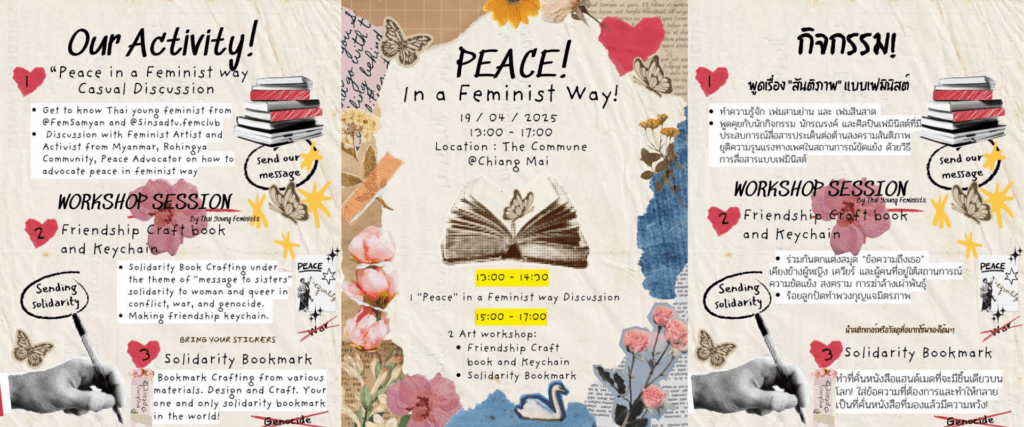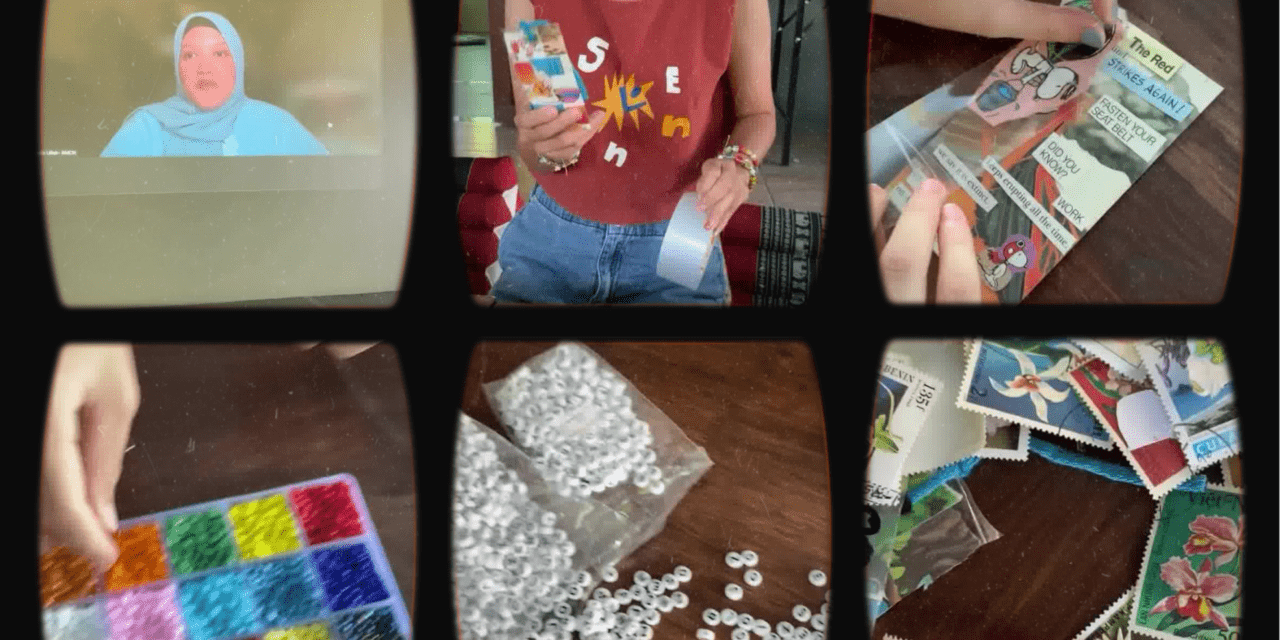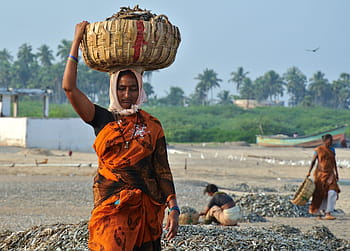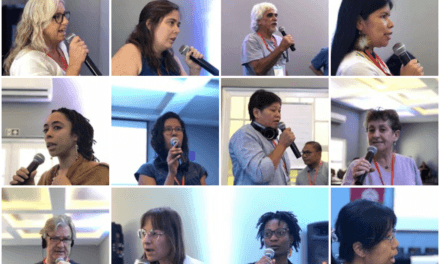On 19th April 2025 at The Commune Chiang Mai, the event “Peace in a Feminist Way” brought together activists, scholars, and community members to reimagine peace-building and communication through an inclusive, intersectional feminist lens. Moving beyond the traditional framing of women and LGBTQ+ individuals as passive victims in armed conflicts, the event explored how peace efforts can actively center marginalized voices, challenge patriarchal narratives, and build solidarities that are inclusive, restorative, and community-driven.
The event opened with a powerful speech by Yasmin, a leading voice from the Rohingya Women Collaborative. Yasmin emphasized the need for the inclusion of women and queer people in all stages of peace processes. Her message inspired young women and gender-diverse activists to build intersectional feminist movements that actively prioritize diversity. She challenged the audience to see beyond token representation and to ensure marginalized voices are not only heard but lead.
The core of the event was a critical discussion guided by four key questions: Why is it important to address gender issues in the areas where we work? What do women-led or queer-led peace efforts look like, and what examples have been empowering? What challenges arise when addressing gender issues within peace work? How can we genuinely support local communities affected by gendered violence, and what actions should we avoid?
Before the discussion, Professor Sirada from Chiang Mai University gave a timely update on the situation in Myanmar following the recent earthquake. She spoke about the ongoing political crisis and the rise of disinformation campaigns driven by the Thai right-wing against Burmese people. Her insights helped set the stage for a deeper conversation on how violence, especially gender-based violence, is often sidelined in broader political discourse.
One of the featured speakers, a Burmese feminist activist, stressed the marginalization of gender issues in mainstream peace dialogues. She reflected on how discussions about sexual violence or gender-based harm are often seen as secondary or “minor” problems, even though they have a deep impact on communities. Thiri emphasized the importance of acknowledging and respecting consent, especially when survivors or their families are involved in campaigns. She warned against sensationalism and highlighted the emotional burden of generational trauma among Burmese people.
Her comments reminded the group that while advocacy is essential, it must be done with care. Some peace-related events, even if well-intentioned, can feel too cheerful and disconnected from the pain and trauma still felt by survivors.
The discussion also brought forward stories of resistance led by women, such as the first garment workers’ union in Myanmar, which became one of the earliest groups to protest after the military coup. These stories offered hope and real examples of how grassroots feminist organizing continues to challenge systems of oppression, even in dangerous political situations.
After the discussion, participants moved into a more informal and creative space led by the Feminist Club. The art workshop gave people a chance to relax and connect through making keychains and bookmarks. Conversations flowed naturally as participants—ranging from Burmese and Thai activists to foreign allies—shared their personal stories and reflected on the day’s discussions. The workshop offered a gentle and grounding close to a day filled with critical reflection, learning, and solidarity.

“Peace! in a Feminist Way” showed that peace-building must move beyond just ending armed conflict. It must dismantle structural oppression and include the voices and leadership of those most affected by violence. Centering women, queer, and gender-diverse individuals not as victims, but as powerful agents of change, is essential for building sustainable and just peace. The event became a meaningful space for dialogue, healing, and imagining what feminist peace can and must look like.


![Upcoming Event: Honoring the Legacy of Sombath Somphone [2 December 2022]](https://focusweb.org/wp-content/uploads/2022/11/Sombath_Speakers-Poster-440x264.png)







